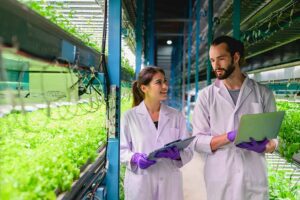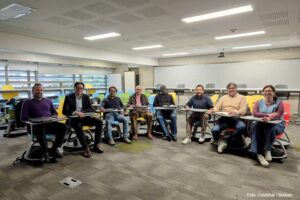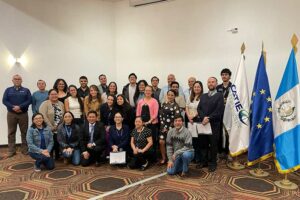CATIE promotes the inclusion of renewable energies in university studies

- CATIE's Director General, Dr. Luis Ernesto Pocasangre, was a panelist at a forum on the subject organized by CAF (Development Bank of Latin America and the Caribbean).
The role of academia in the region's energy transition process was the topic developed by CATIE's Director General, Dr. Luis Ernesto Pocasangre, during his participation as a panelist in a forum on renewable energies organized by CAF (Development Bank of Latin America and the Caribbean).
The activity, held at the facilities of the Inter-American Institute for Cooperation on Agriculture (IICA) in Coronado, Costa Rica, served to present CAF's Economy and Development Report (RED) entitled “Renewed Energies: A Just Energy Transition for Sustainable Development.
In addition to Dr. L. E. Pocasangre, speakers included Franz Tattenbach, Minister of Environment and Energy of Costa Rica, and Marco Vinicio Acuña Mora, Executive President of the Costa Rican Electricity Institute, moderated by Walter Cont, Director of CAF's Socioeconomic Research Department.
During the panel, the importance of including the topic of renewable energies in the curricula of higher education institutions was discussed. “It is important to redesign and update the curricula in agronomy faculties to incorporate more courses on the rational use of natural resources and renewable and alternative energy sources,” Dr. Pocasangre said. He also emphasized that one of CATIE's advantages compared to other universities is its flexibility and agility in carrying out this type of curricular reforms.
Another topic discussed at the forum was the importance and control of artificial intelligence to improve energy use and consumption. In this regard, Dr. Pocasangre commented that from academia the discussion has focused on the negative aspects of artificial intelligence, ignoring its advantages. “If we make good use of artificial intelligence we can make progress in education, research and technology transfer, which are the three primary functions of a university,” he said.
CAF's RED “Renewable Energies” report underscores the need to carry out a just energy transition, focused from the perspective of Latin America and the Caribbean and addressing the historical development lags in the region, to increase the use of renewable energies and the progressive substitution of fossil fuels for cleaner alternatives.
Written by:
Alejandro Portilla Navarro
Communicator
Communications and Marketing Office
CATIE
alejandro.portilla@catie.ac.cr



